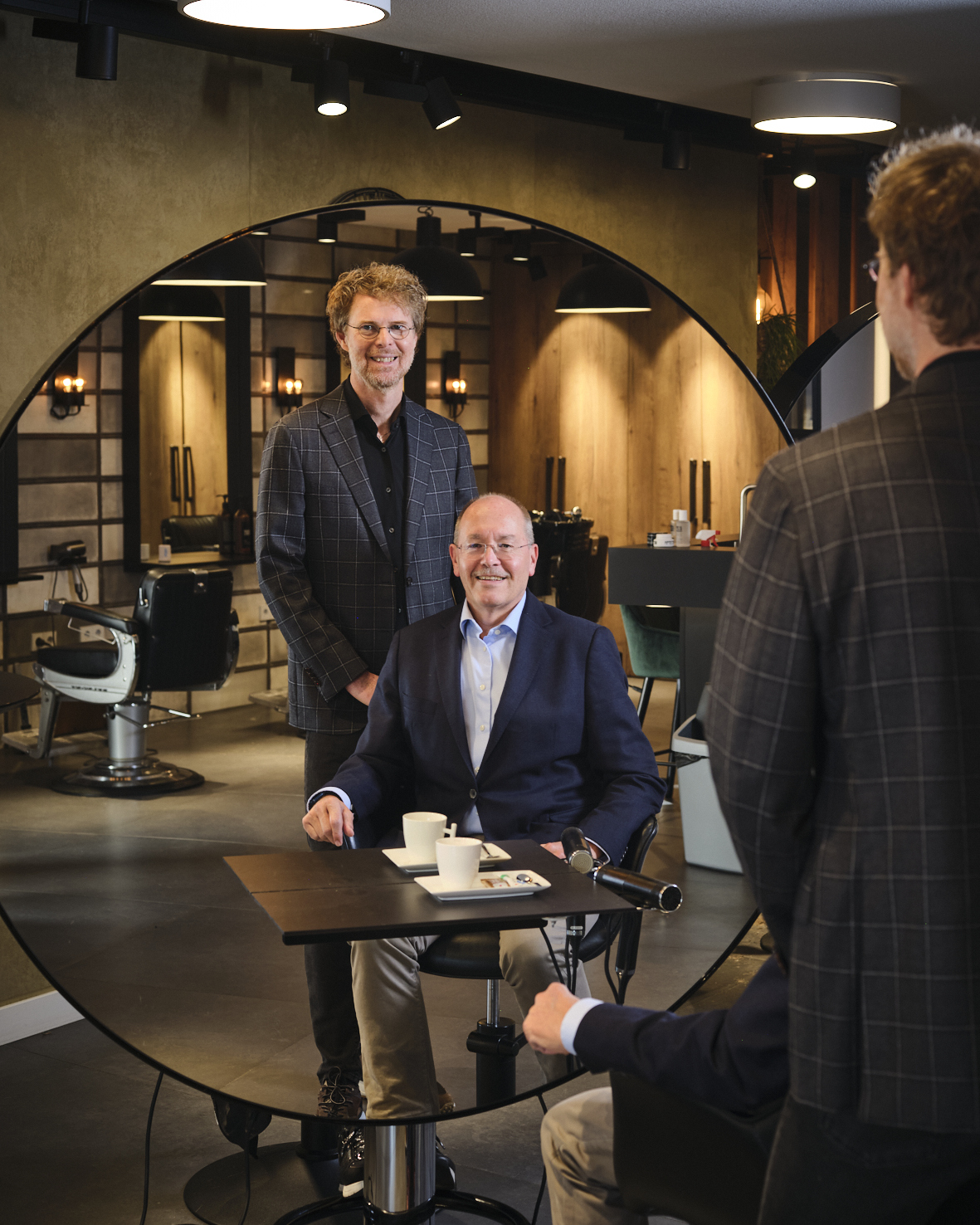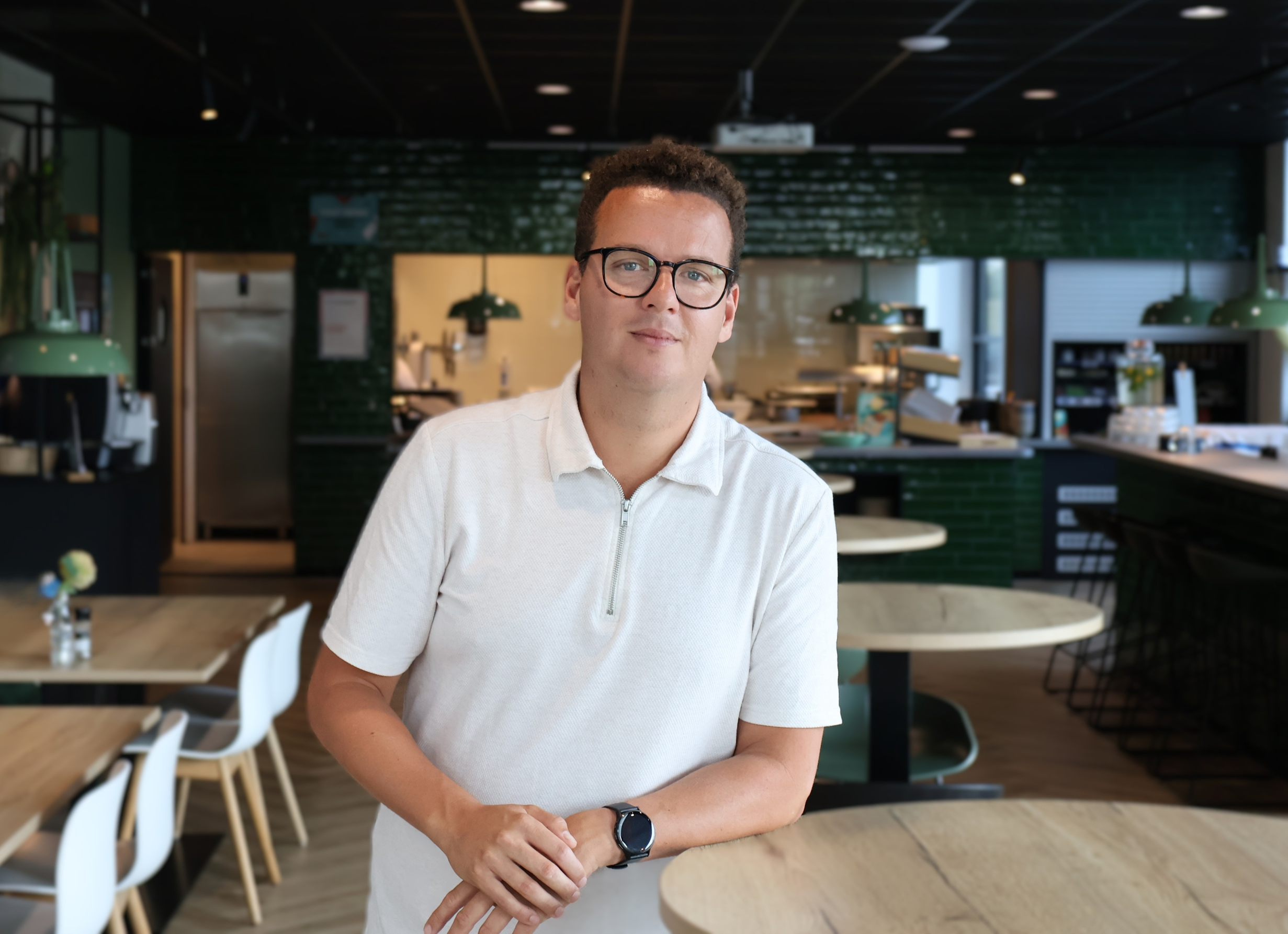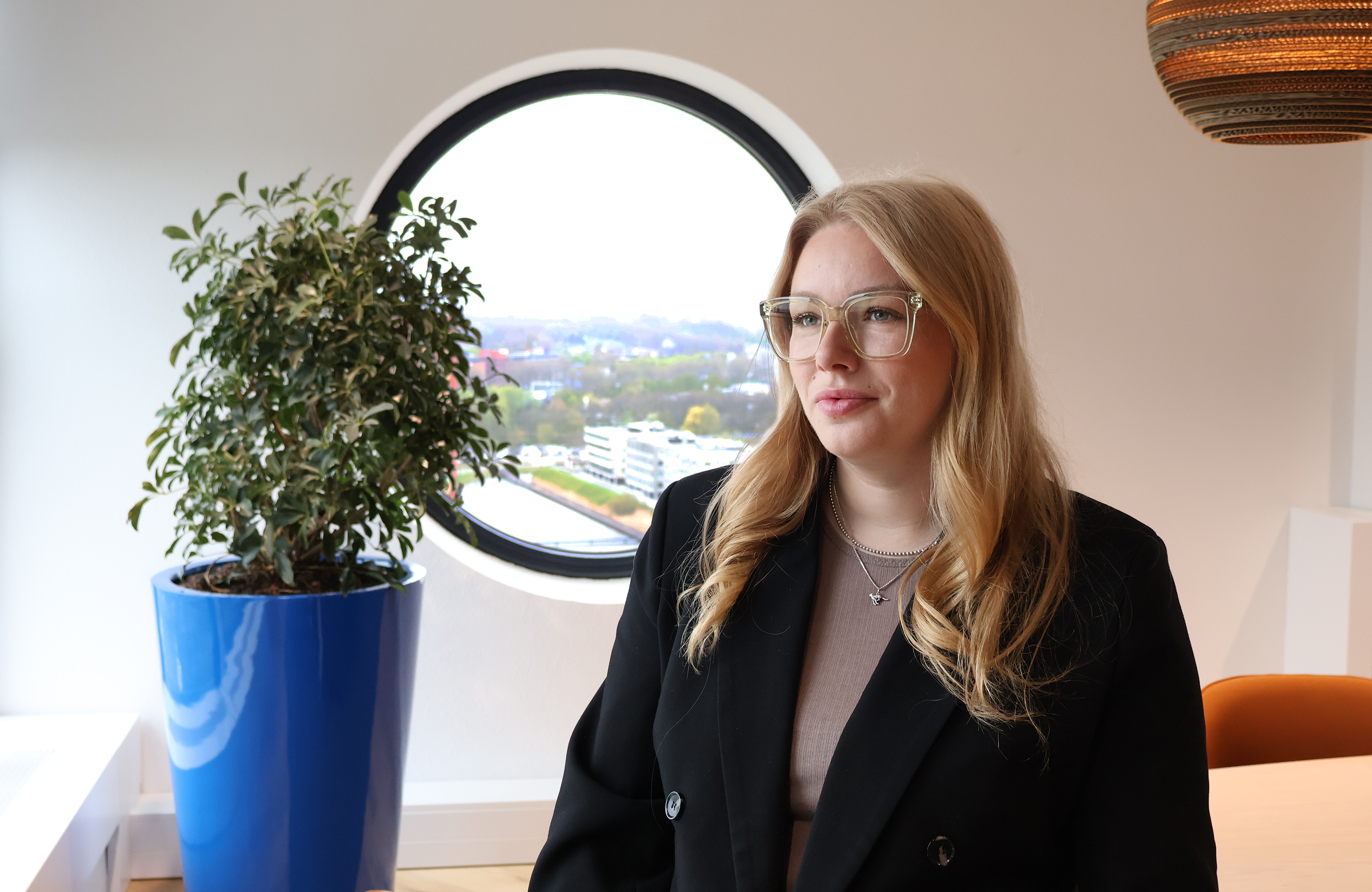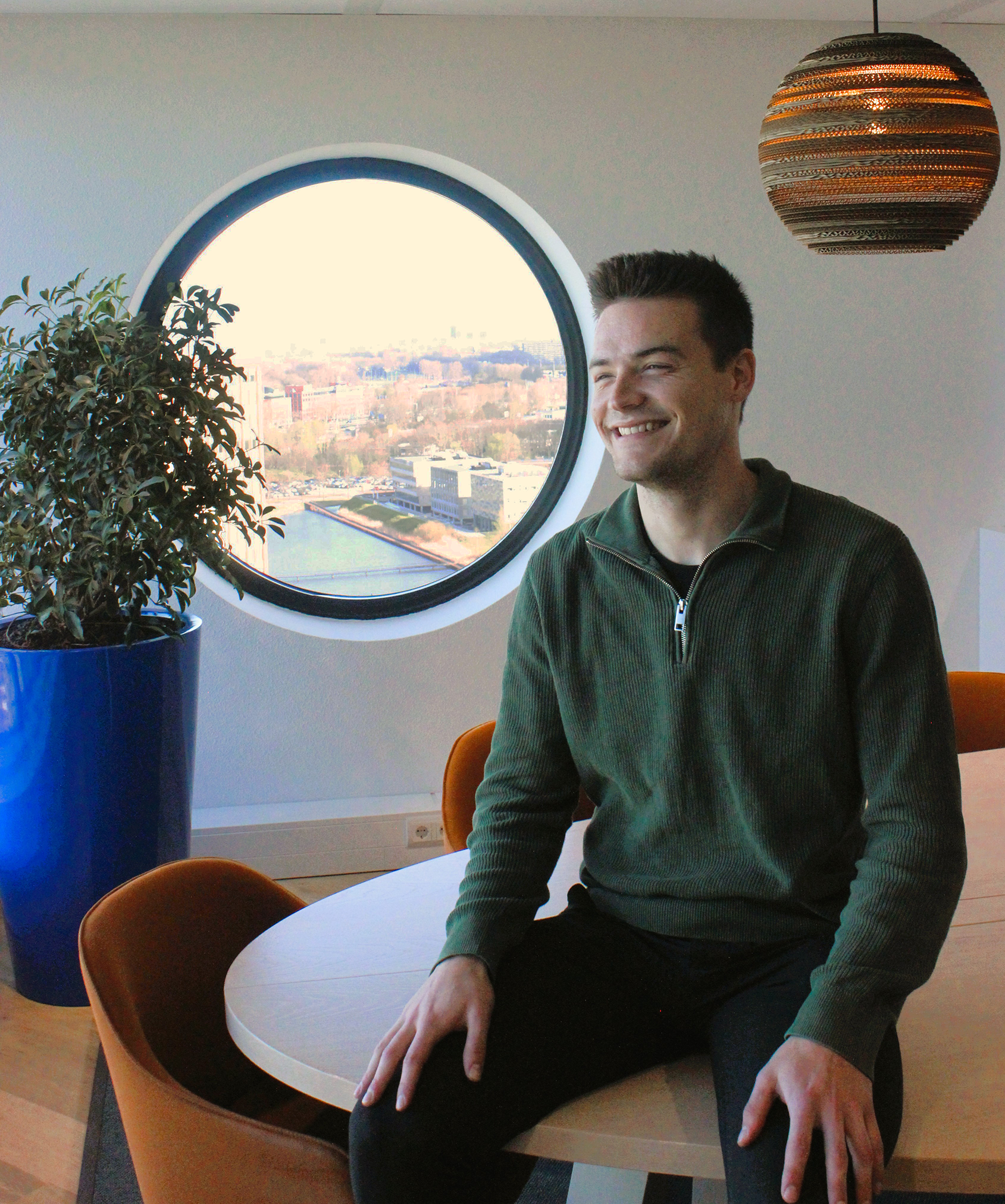(pictured standing Maurice Crusio and seated Eric Kreft - Commercial Director Affinitygroups at Schouten Zekerheid)
'Great to be able to do something for our members as an industry association'
Are you definitely not going out the door without your hair combed or blow-dried? Then you are really not the only one. That the Dutch became unhappy with their coronacoupe shows how much value people attach to a well-cut hairstyle. Trade association ANKO stands up for the interests of enterprising hairdressers. "We help them get the best out of their business," says ANKO president Maurice Crusio.
ANKO president Maurice Crusio is an optimistic person. He certainly does not want to make it a sad story, but he cannot deny that the hairdressing industry is struggling financially. The corona pandemic has hit him and the members of the trade association hard, he says in his own hair salon, Crusio Haarstyling, in Oudenbosch, Brabant. "Because of the lockdowns, our branch was closed for a total of 22 weeks. We could only make very limited use of the support schemes offered by the government, which caused many entrepreneurs to run into financial difficulties. They sold their cars, increased their mortgages, tapped into their pension provisions or needed financial help from family and friends to keep their businesses afloat. The perception that the government generously supported entrepreneurs is unfortunately really not accurate."
Knowledge and skills
The ANKO has just over 5,000 members, representing some 67% of all working people - employers and employees - in the hairdressing industry. 'Our mission is to achieve and maintain a professional and thriving hairdressing industry and to improve the individual profitability of members,' the ANKO website states. Maurice explains that mission. "We try to guide entrepreneurs in the hairdressing industry as best we can with our knowledge and expertise, focusing on entrepreneurs who run their businesses in a serious, professional manner. They are the backbone of our industry. Without them no hairdressing salons, no jobs, no innovation, no apprenticeships and traineeships, in short: no hairdressing industry."
Among other things, the ANKO offers its members the ANKO Academy with all kinds of workshops and training courses. In addition, the association offers tailored advice - for example on labor or tenancy law -, extensive information on personnel matters such as recruitment, performance reviews and dismissal, and financial benefits, including in the area of insurance. Furthermore, the ANKO researches consumer behavior and informs and inspires members regarding money and health and safety issues, education, marketing and risks. "We help entrepreneurs in the hairdressing industry get the best out of their business," says Maurice.
Lobbying
The ANKO also stands up for the collective interests of its members and lobbies intensively in politics in The Hague. Among other things, the trade association fights for a reduction of the sky-high regulatory and tax burden for entrepreneurs, a level playing field and the preservation of the low VAT rate. "All hairdressers, of all shapes and sizes, deserve a fair and equal chance to succeed," believes Maurice, who saw during the coronapandemie that the ANKO was rewarded for its trade association's lobbying work. Because after the lockdowns, barber stores were allowed to be among the first to open each time.
"Just before the first lockdown in March 2020, we received messages from concerned members. They heard that people were dying from corona and did not want their customers or employees to be at risk. We made the difficult decision to advise our members to close their doors, but shortly thereafter the ministry came out with the message that barbershops could stay open. Try explaining that to your supporters ..." When the barbershops did have to close a few days later, the ANKO then took every opportunity to call attention to the situation of the barbershop industry. "We spoke several times with State Secretary Mona Keijzer, shared our concerns with the Minister of Finance, bombarded Members of Parliament with information and data, worked intensively with our umbrella organization MKB Nederland and told our story in various radio and television programs."
Gunfactor
Both after the first, second and third lockdown, barbershops were among the first branches to unlock their doors. The favor factor of the Dutch population probably played a role in this, because almost every Dutch person goes to the hairdresser once every few weeks. Maurice: "The corona crisis showed how important hairdressers are for the self-confidence of the Dutch and for 'feeling good in your skin'. We were really missed enormously during the lockdowns! That we were always the first to open was a wonderful result of our intensive lobbying, but also necessary. Because although many hairdressers received a one-time concession of 4,000 euros during the first lockdown, hardly anyone was entitled to the NOW and/or TLV schemes after that. And for the income of entrepreneurs who themselves are not on the payroll, nothing was arranged anyway. Many entrepreneurs ran into financial problems due to the lack of support."
Even the payment arrangement that the ANKO Insurance Service (see box) made with various insurers could not prevent this. "We immediately arranged with insurers to extend the payment period from 30 to 90 days. But the invoices do eventually have to be paid," says Eric Kreft, who is commercial director affinity groups at Schouten Zekerheid and focuses primarily on insurance service concepts for the various industry associations. "For the ANKO we have created specific products, such as the Salon Certainty Package, the Cut & Ready Policy, the Hairwork Policy, the Barber Policy and the ZZP Package. We also offer additional coverages, such as co-insuring hairdressing eczema and free money and stock coverage."
Challenges
"Even without the corona virus, our industry has plenty of challenges," Maurice continues. "Rates are under pressure, the taxes deferred because of corona must be paid, entrepreneurship and especially being an employer is becoming increasingly difficult due to the enormous regulatory burden, the subsidy for practical learning is constantly under threat, finding good people in the tight labor market is very difficult and the huge inflation is a major problem. In time, hairdressers will also be required to make their businesses more sustainable, but how will they get the funds?"
A good insurance package at a good price is no luxury in this regard, Maurice says. "The payment plan we just talked about was important for members who use our insurance service. That extra two months' grace period gave many entrepreneurs just a little more financial room to maneuver. As a trade association, we are pleased to be able to offer our members benefits in price and convenience through the insurance service. What is also very pleasant is that they know and recognize our situation. The communication is excellent and the insurance offer meets the needs of our members very well."
Data
Using data from ANKO relations will further improve the service towards members, Eric says. "We use the information from turnover, payrolls, staff numbers and absenteeism to develop the best (digital) product for hairdressers. For example, there is a remote closing lane, which allows hairdressers to apply for policies digitally. But the info from data also helps to take preventive measures to avoid damages."
Maurice: "Sick leave, water and burglary damage are the biggest risks in the hairdressing industry. Data can reduce absenteeism and the risk of damages. The fact that the use of data also plays a prominent role at the ANKO Insurance Service is therefore a real win-win situation for us. Because we have a beautiful profession and many entrepreneurs have their affairs in order, but things can always go wrong once. It is nice that we as a trade association can then mean something for our members."






